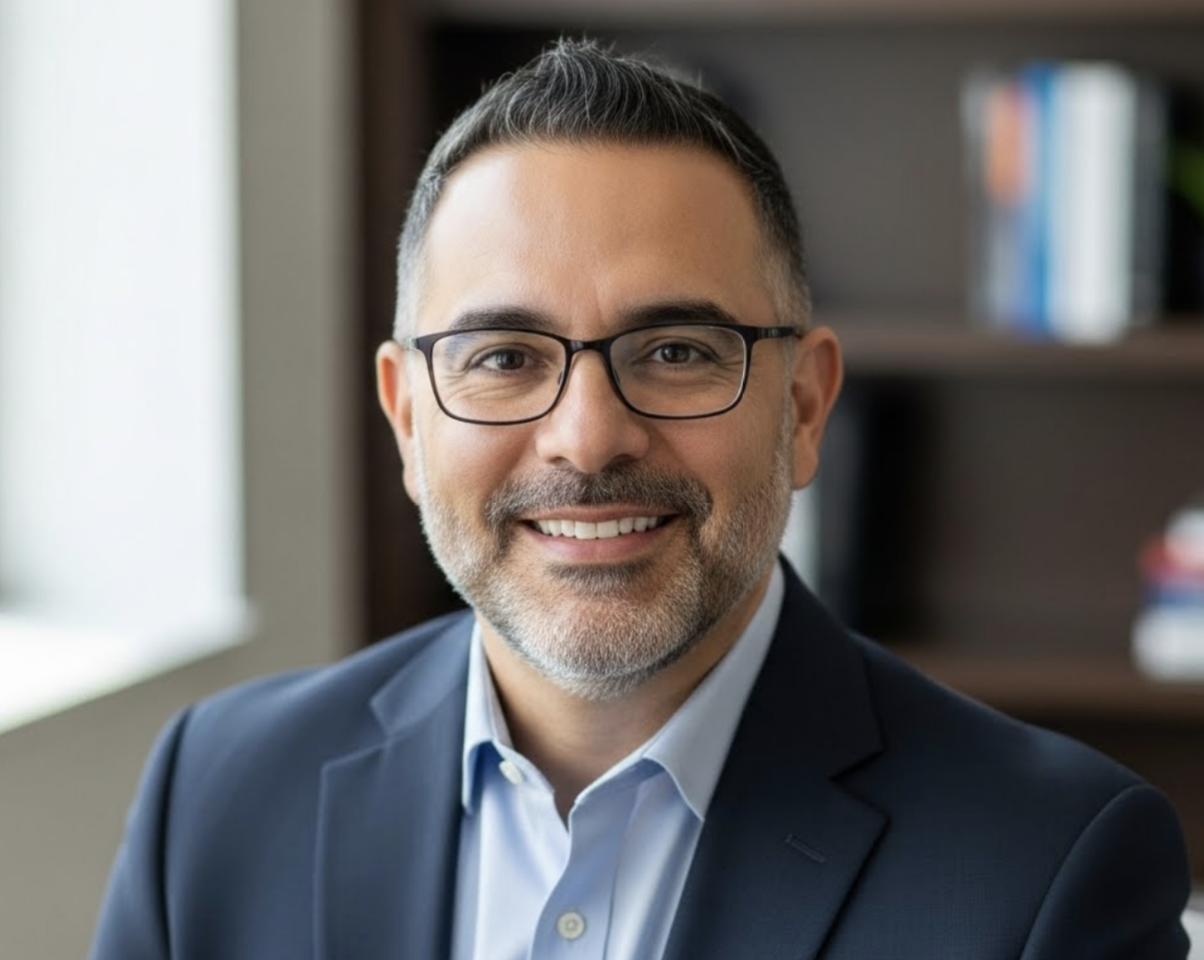Online Addiction Counseling Degree
Online addiction counseling degrees are available at every level—from certificate programs (less than one year) to doctoral degrees (6-8 years). Most states require at least an associate degree for certification, though requirements vary by state and credential level. Online programs offer flexibility for working professionals while maintaining the same accreditation standards as on-campus programs.
One of the most debilitating things that comes with addiction is the feeling of helplessness. People with substance use disorders and other addictions don’t know where to turn. And even when they’re ready to accept help, the reality is that the people who love them don’t know what to do either.
This is where you come in. As an addiction counselor, you’ll be the steady hand guiding individuals and families through one of the darkest periods of their lives. You’ll provide the tools, strategies, and support that transform recovery from an overwhelming challenge into achievable steps forward.
Education is your foundation in this work. Online addiction counseling degree programs exist at every level—certificate through doctoral—allowing you to build your qualifications while managing your current responsibilities. These programs deliver the same accredited education and clinical training as traditional on-campus degrees, with the flexibility to study when and where it works for your life.
What Degree Levels Are Available?
Addiction counseling education follows a clear progression, with each degree level opening doors to higher levels of practice and clinical authority. Your state’s specific requirements and your career goals will determine which degree path makes sense for you.
| Degree Level | Timeline | Entry Requirements | Career Outcomes |
|---|---|---|---|
| Certificate | Less than 1 year | High school diploma or GED | Entry-level counselor aide or technician |
| Associate Degree | 2 years | High school diploma or GED | Certified addiction counselor (supervised practice) |
| Bachelor’s Degree | 4 years | High school diploma or some college | Licensed counselor, case manager, program coordinator |
| Master’s Degree | 2-3 years | Bachelor’s degree | Clinical counselor, independent practice, supervisor |
| Doctoral Degree | 4-6 years | Master’s degree | Research, university teaching, clinical leadership |
Certificate Programs in Addiction Counseling

Timeline: Less than one year
Designed for: Those pursuing entry-level credentials or adding specialized training to existing degrees
Certificate programs provide focused training in addiction counseling fundamentals without requiring a full degree commitment. These programs typically require 300-600 clock hours of coursework covering substance abuse assessment, counseling techniques, ethics, and cultural competency.
You’ll find certificate programs work well if you’re already working in a related field—social work, psychology, nursing—and want to add addiction counseling to your practice. They’re also the fastest entry point if you’re looking to start a new career and your state allows certification with a certificate alone.
Many online certificate programs are designed with working professionals in mind. You’ll complete coursework asynchronously, though some programs require supervised clinical hours that you’ll arrange with approved sites in your area.
Associate Degrees in Addiction Counseling
Timeline: Two years
Designed for: High school graduates seeking professional certification as addiction counselors
An associate degree in addiction counseling establishes your foundation in both general education and specialized addiction treatment knowledge. The typical 60-credit program splits roughly evenly between general education requirements (English, math, social sciences) and addiction-focused courses.
Will an associate degree qualify you to practice independently as an addiction counselor?
In most states, an associate degree meets the educational requirement for certification as an addiction counselor, though you’ll still need to complete supervised clinical hours and pass your certification exam. What you won’t typically get with just an associate degree is the ability to practice independently—you’ll work under the supervision of a more advanced counselor.
The associate degree path makes sense if you’re certain about addiction counseling as a career and want to start working in the field quickly. The credentials you earn open doors to entry-level positions in treatment facilities, where you’ll gain the supervised experience required for higher-level licensure.
Associate Degrees Often Transfer to Bachelor’s Programs
One advantage of starting with an associate degree is the transfer pathway it creates. Many community colleges have articulation agreements with four-year universities, ensuring your credits transfer cleanly into a bachelor’s program if you decide to continue your education.
This matters more than you might think. The field is moving toward requiring higher credentials for independent practice and clinical licensure. Starting with an associate degree doesn’t lock you into that level—it gives you a working credential while keeping the door open for advancement.
Bachelor’s Degrees in Addiction Counseling
 Timeline: Four years
Timeline: Four years
Designed for: Those seeking comprehensive preparation for professional licensure and clinical practice
A bachelor’s degree in addiction counseling or a related field (psychology, social work, counseling) is increasingly the standard educational requirement for professional licensure. The 120-credit curriculum goes deeper into counseling theory, psychopathology, research methods, and clinical techniques than you’ll find at the associate level.
You’ll complete a supervised practicum or internship as part of your degree requirements, giving you hands-on experience in real treatment settings before you graduate. This clinical training is where the classroom knowledge starts to make practical sense—you’ll see how assessment tools work with actual clients, how to navigate ethical dilemmas, and what effective therapeutic relationships look like.
Many states now require a bachelor’s degree as the minimum educational standard for licensed addiction counselor credentials. Even in states where an associate degree technically qualifies you for certification, employers increasingly prefer or require bachelor’s-level education for hiring.
Master’s Degrees in Addiction Counseling
Timeline: Two to three years beyond bachelor’s degree
Designed for: Counselors pursuing clinical licensure, independent practice, or supervisory roles
A master’s degree represents the clinical standard in addiction counseling. The typical 48-60 credit program prepares you for advanced clinical practice, including diagnosis, treatment planning, and independent counseling with minimal supervision.
Do you need a master’s degree to succeed in addiction counseling?
Not necessarily—but the field rewards it. Master’s-level counselors earn significantly higher salaries, have more employment options, and can pursue independent practice and clinical supervision roles that aren’t available at lower credential levels. The Bureau of Labor Statistics reports that counselors with master’s degrees earn roughly 30% more than those with bachelor’s degrees alone.
CACREP Accreditation Opens Doors
When researching master’s programs, you’ll encounter CACREP accreditation—the Council for Accreditation of Counseling and Related Educational Programs. CACREP-accredited programs meet rigorous national standards for counselor education.
Why does this matter to you? Many state licensing boards require graduation from a CACREP-accredited program for clinical licensure. Even in states where it’s not mandatory, CACREP accreditation often speeds up the licensure process and creates reciprocity options if you later move to another state.
Online master’s programs in addiction counseling increasingly carry CACREP accreditation, so you’re not sacrificing quality or credentials by choosing distance education.
You’ll complete 600-1,000 supervised clinical hours as part of your master’s program, far exceeding the practicum requirements at the bachelor’s level. This extensive supervised practice prepares you for the independent clinical work you’ll do after graduation.
Doctoral Programs in Addiction Counseling
Timeline: Four to six years beyond the master’s degree
Designed for: Researchers, university faculty, and clinical leaders
Doctoral degrees in addiction counseling, counselor education, or related fields prepare you for roles that shape the profession rather than direct practice alone. You’ll focus on research, program development, policy, or teaching the next generation of counselors.
Two doctoral paths exist: the PhD (Doctor of Philosophy) emphasizes research and theory development, while the PsyD (Doctor of Psychology) focuses more on advanced clinical practice and applied psychology. Some counselors also pursue the EdD (Doctor of Education) with a concentration in counselor education.
Doctoral programs aren’t about better counseling skills—they’re about contributing to the knowledge base of addiction treatment. You’ll conduct original research, publish scholarly work, and develop expertise in specialized areas like medication-assisted treatment, co-occurring disorders, or specific populations.
Why Accreditation Matters
 Accreditation is your protection against investing time and money in a program that won’t meet licensure requirements or transfer to other institutions. Two types of accreditation matter for addiction counseling programs.
Accreditation is your protection against investing time and money in a program that won’t meet licensure requirements or transfer to other institutions. Two types of accreditation matter for addiction counseling programs.
Institutional accreditation verifies that the college or university meets basic educational standards. Regional accreditation (from bodies like the Higher Learning Commission or Middle States Commission) is the gold standard, ensuring your credits will transfer and your degree will be recognized.
Programmatic accreditation verifies that the specific addiction counseling program meets professional standards. CACREP accreditation is the most recognized programmatic credential for counseling programs. Some programs also hold accreditation from CSWE (Council on Social Work Education) if they’re social work programs with addiction concentrations.
Before you enroll in any online program, verify both institutional and programmatic accreditation. Your state licensing board’s website will list which accreditation bodies they recognize for educational requirements.
Career Outlook and Salary Data
The addiction counseling field continues to grow as awareness of substance use disorders increases, and treatment becomes less stigmatized. According to the Bureau of Labor Statistics, employment of substance abuse, behavioral disorder, and mental health counselors is projected to grow faster than average through 2032.
National salary data provides a realistic picture of earning potential at different career stages. The median annual wage for substance abuse and behavioral disorder counselors was $59,190 in May 2024, with the middle 50% of counselors earning between $47,170 and $76,230 annually.
| Experience Level | Annual Salary Range | Typical Roles |
|---|---|---|
| Entry-Level (10th percentile) | $39,090 | Counselor aide, case worker, intake specialist |
| Mid-Career (Median) | $59,190 | Licensed counselor, program coordinator |
| Experienced (90th percentile) | $98,210 | Clinical supervisor, program director, private practice |
Your earning potential increases with education level, years of experience, clinical specialty, and geographic location. Counselors with master’s degrees consistently out-earn those with bachelor’s or associate degrees. Those who pursue clinical licensure and open private practices often reach the higher end of the salary range.
The total national employment for substance abuse, behavioral disorder, and mental health counselors was 440,380 as of May 2024, demonstrating significant workforce demand across the United States.
Frequently Asked Questions
Can I become an addiction counselor with only an online degree?
What’s the minimum degree needed to become a licensed addiction counselor?
How long does it take to complete an online addiction counseling degree?
Do online programs require in-person clinical hours?
What’s the difference between addiction counseling and substance abuse counseling degrees?
Can I transfer credits from an associate’s degree to a bachelor’s program?
Is CACREP accreditation required for all addiction counseling programs?
Can I specialize in a specific type of addiction during my degree program?
Key Takeaways
- Online addiction counseling degrees are available at every level, from certificate through doctoral programs, with the same accreditation standards as on-campus degrees.
- Most states require at least an associate degree for certification, though a bachelor’s degree is increasingly the standard, and a master’s degree opens doors to independent practice and higher salaries.
- All accredited programs require in-person supervised clinical hours (300-1,000 hour,s depending on level) that you complete at approved facilities while taking coursework online.
- CACREP accreditation is crucial for master’s programs, as many states require it for clinical licensure or offer faster licensure pathways for CACREP graduates.
- The median annual salary for addiction counselors is $59,190, with the top 10% earning over $98,210 annually, and master’s-level counselors earning approximately 30% more than bachelor’s-level counselors.
- Associate degree credits typically transfer to bachelor’s programs, allowing you to start working in the field with a two-year degree while keeping advancement pathways open.
Ready to Start Your Addiction Counseling Education?
Find accredited online programs at every degree level and take the first step toward a career helping individuals and families overcome addiction.
Salary data sourced from the 2024 US Bureau of Labor Statistics salary and employment figures for Substance Abuse, Behavioral Disorder, and Mental Health Counselors reflect national data, not school-specific information. Conditions in your area may vary. Data accessed January 2026.







